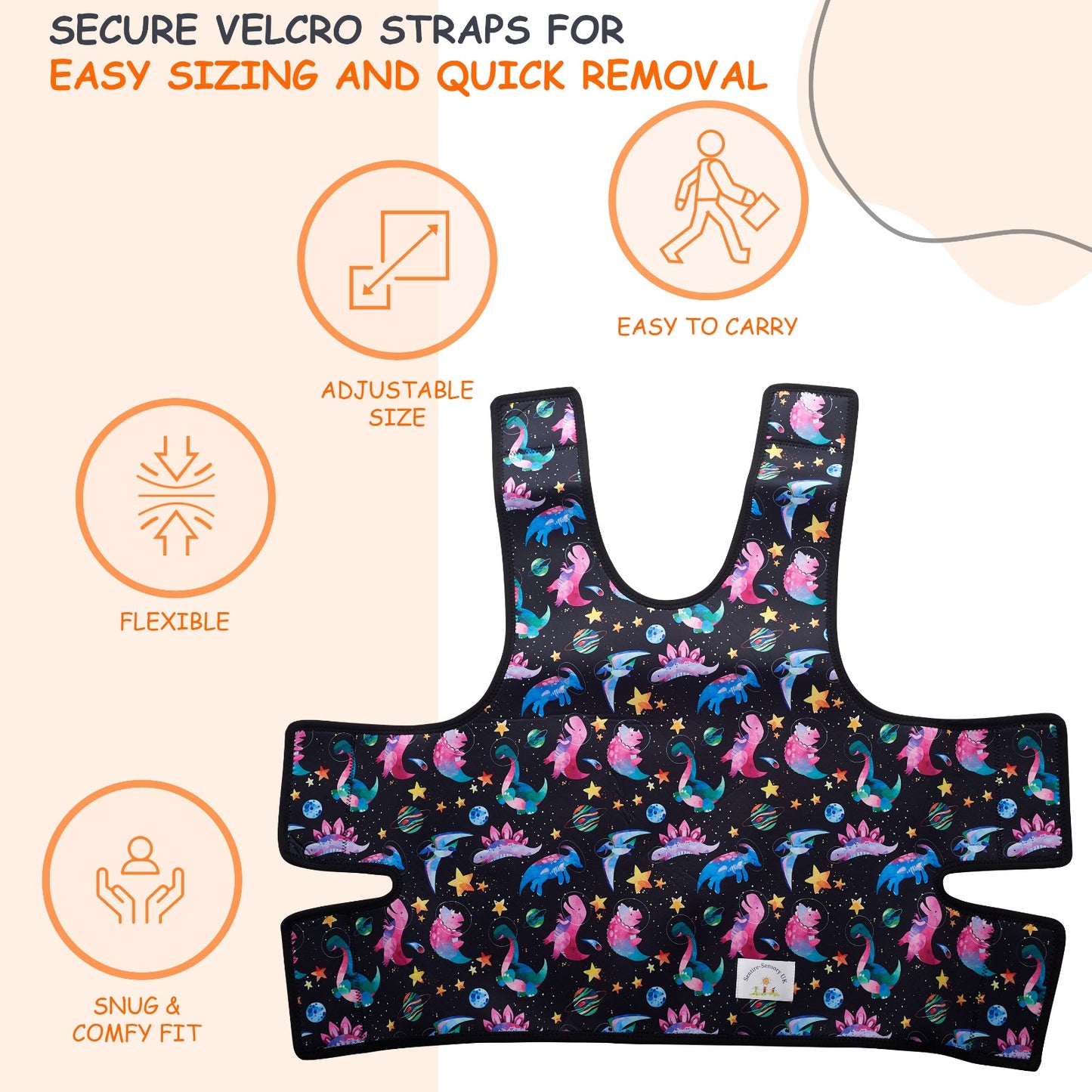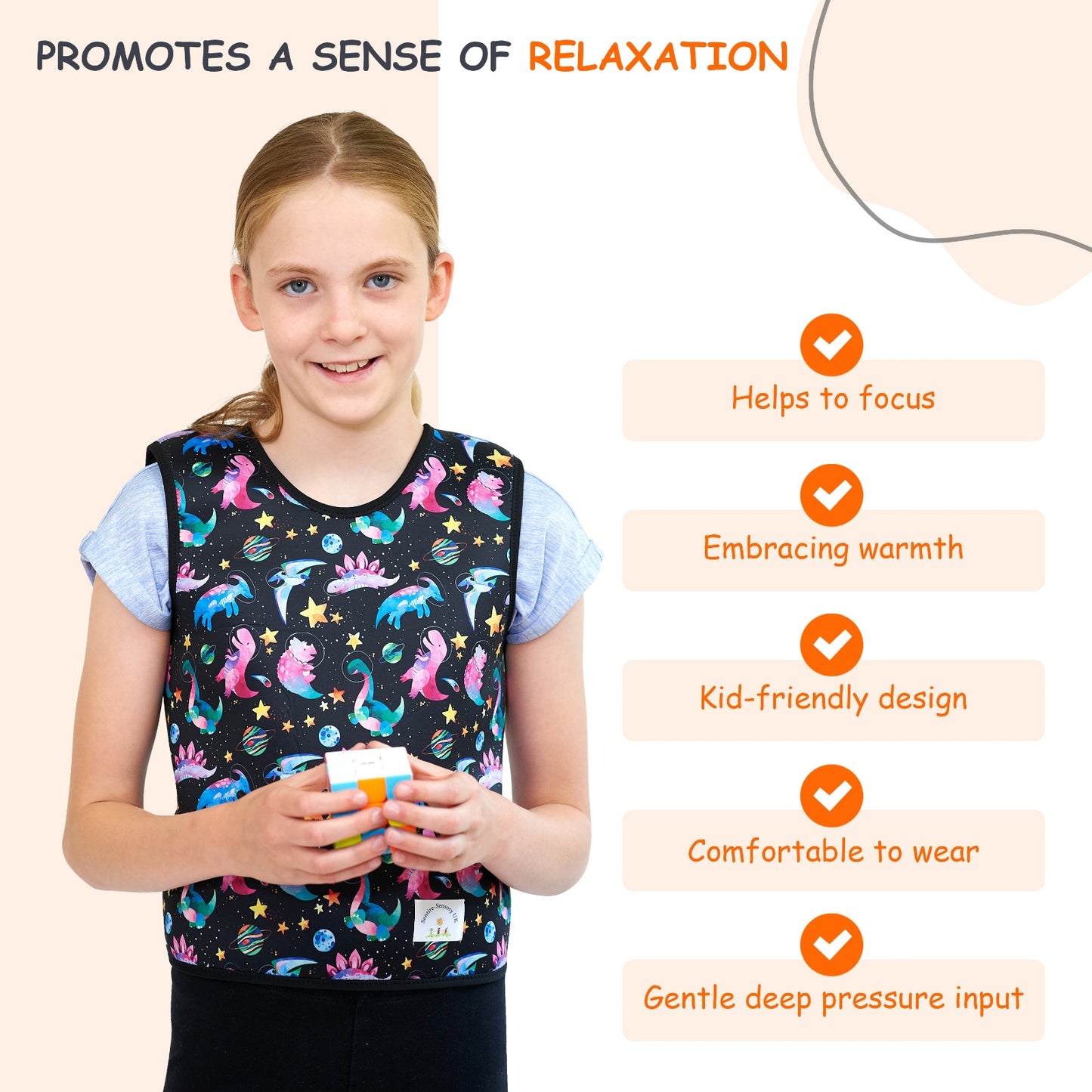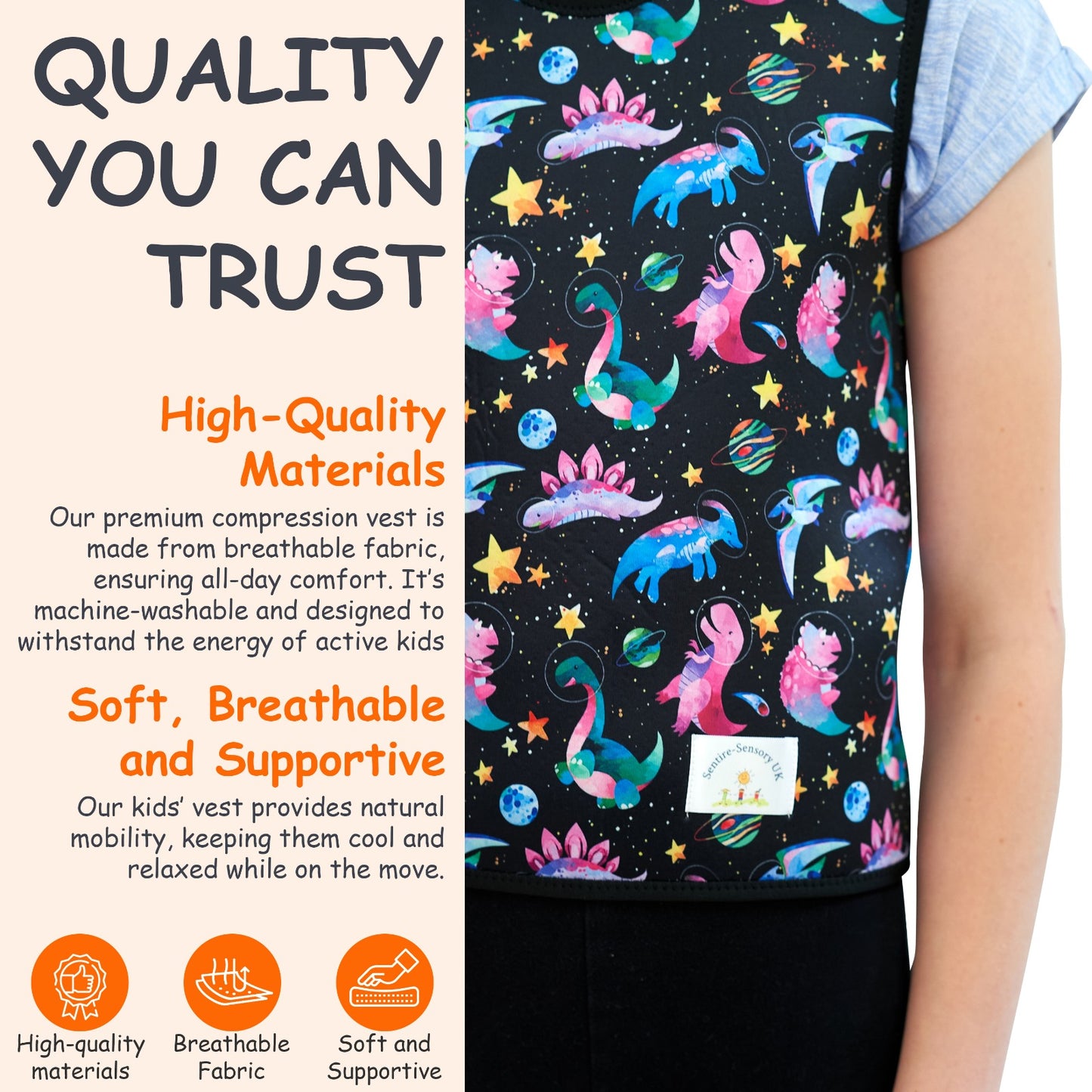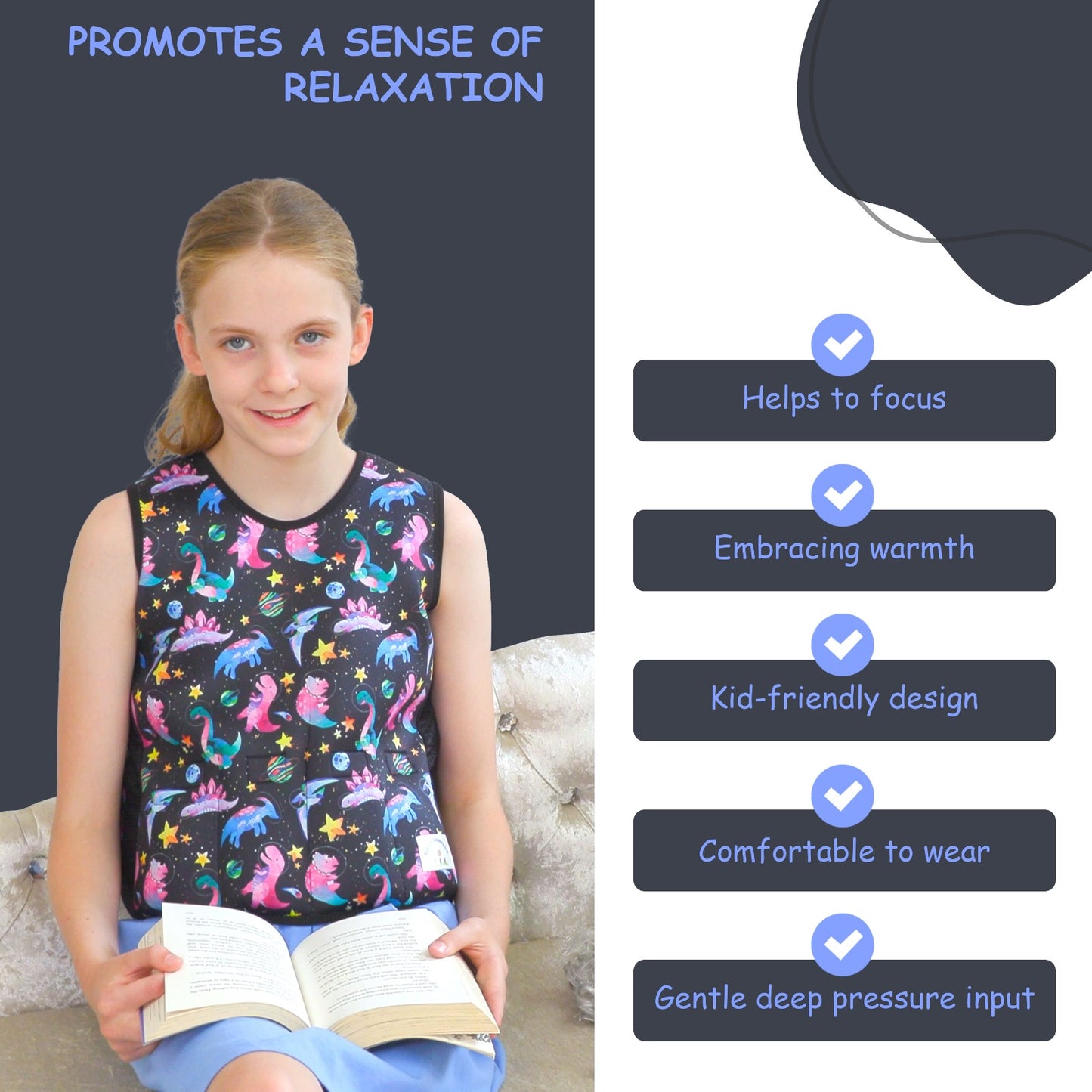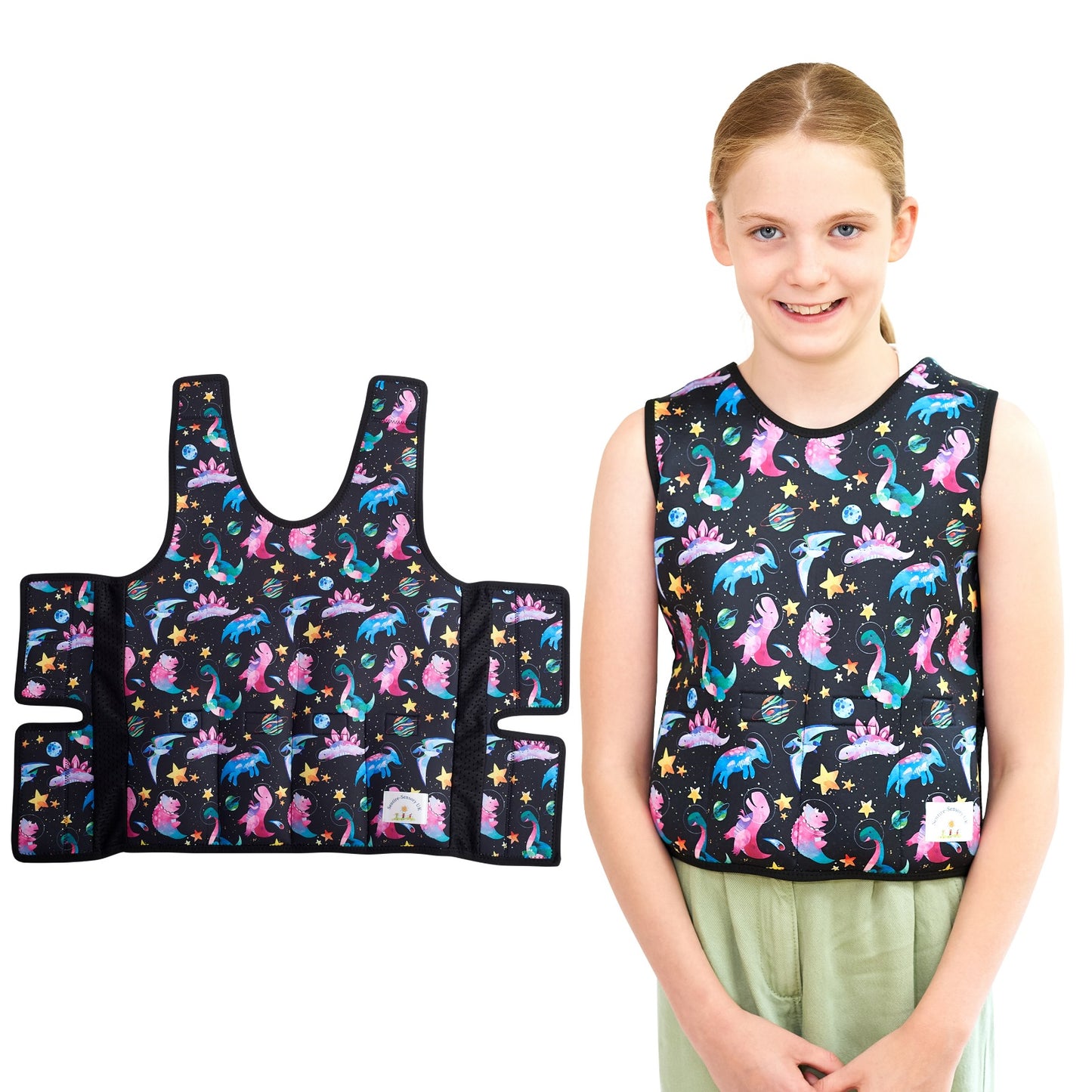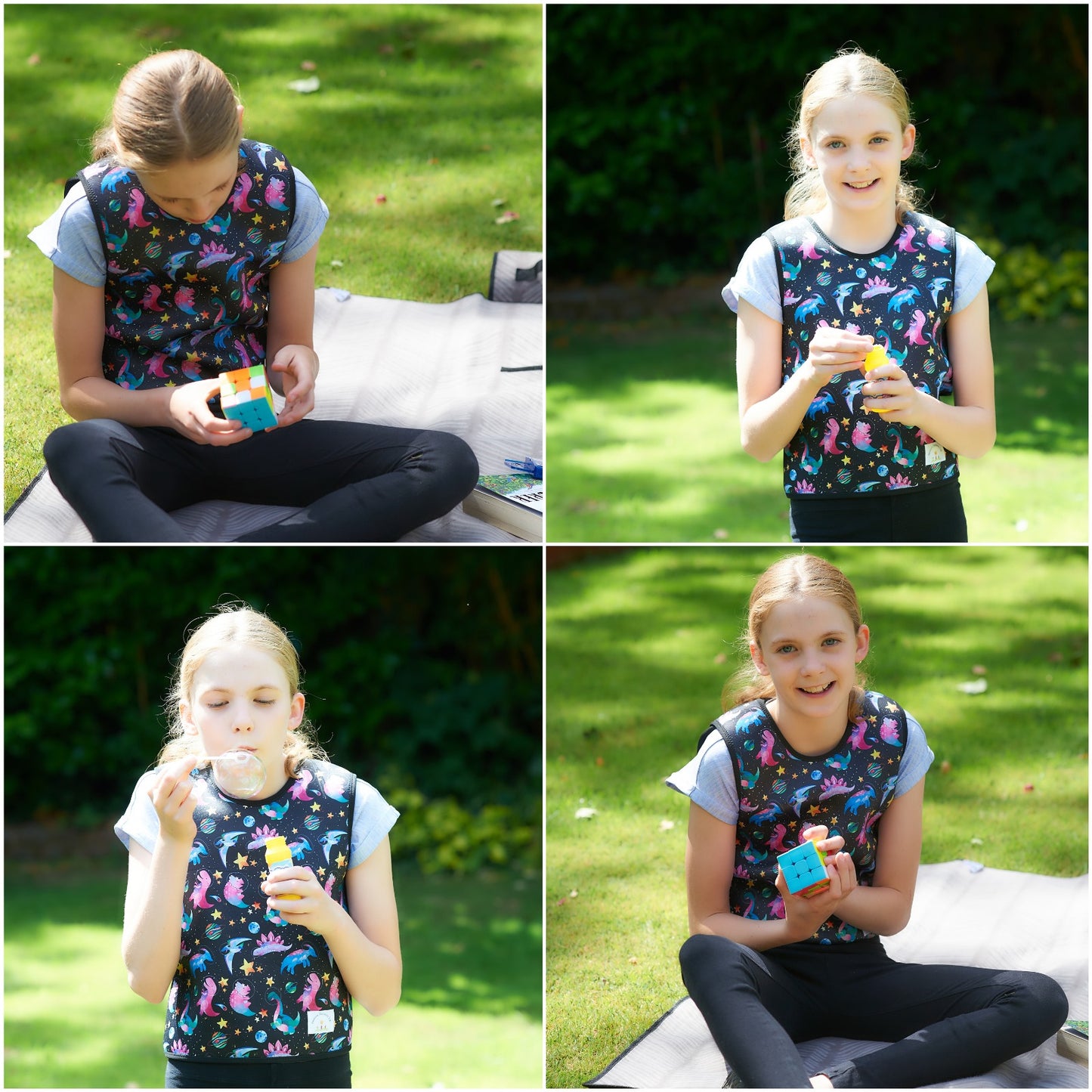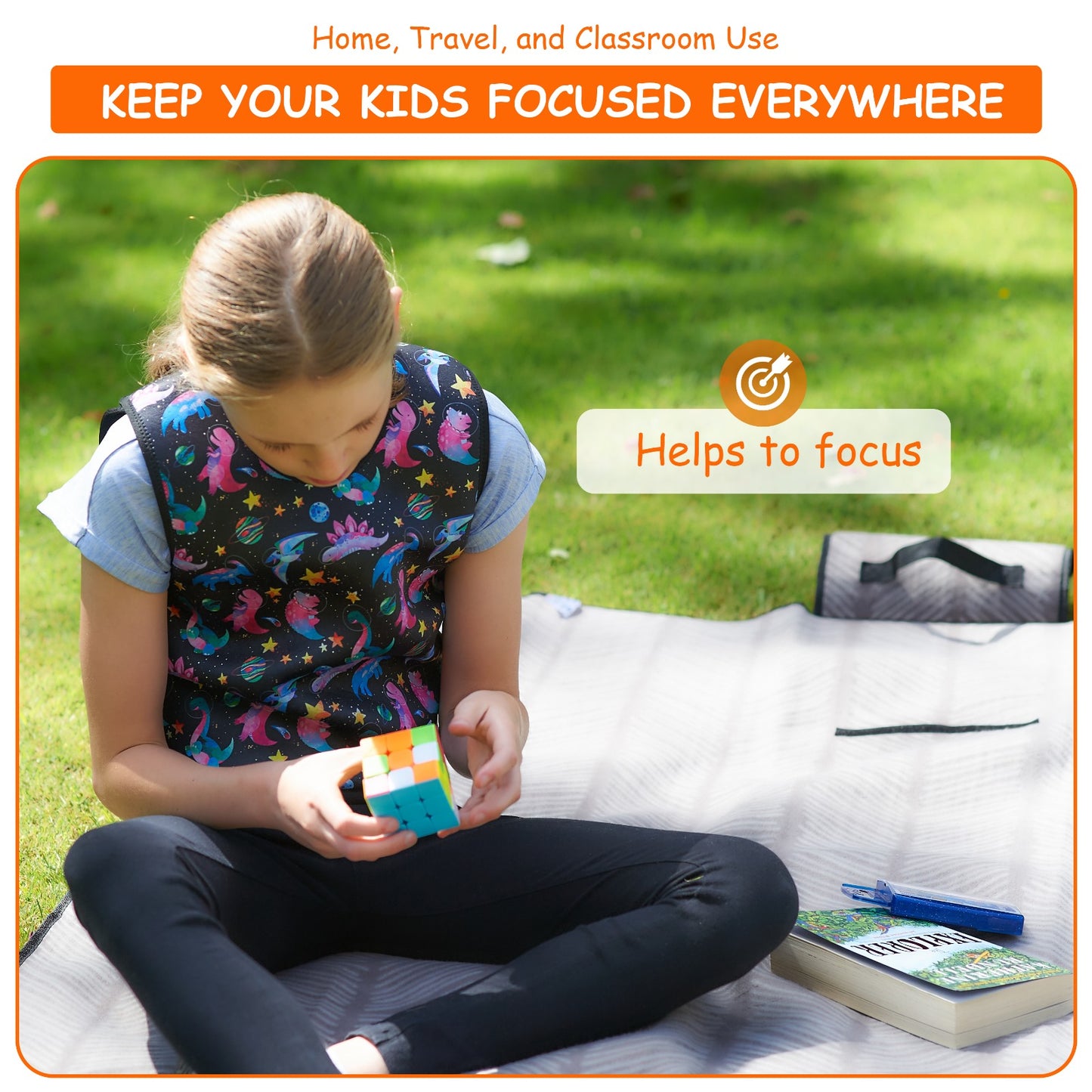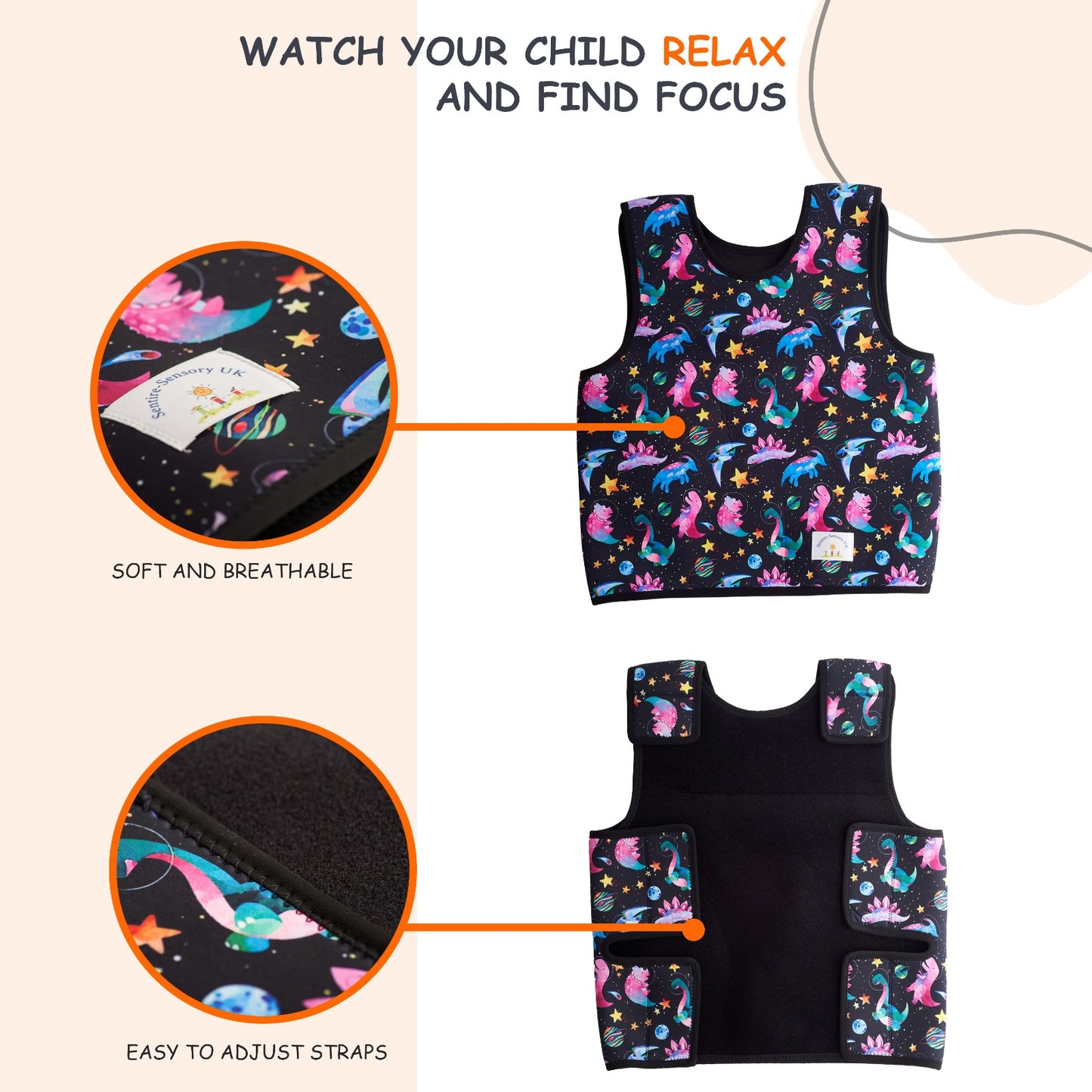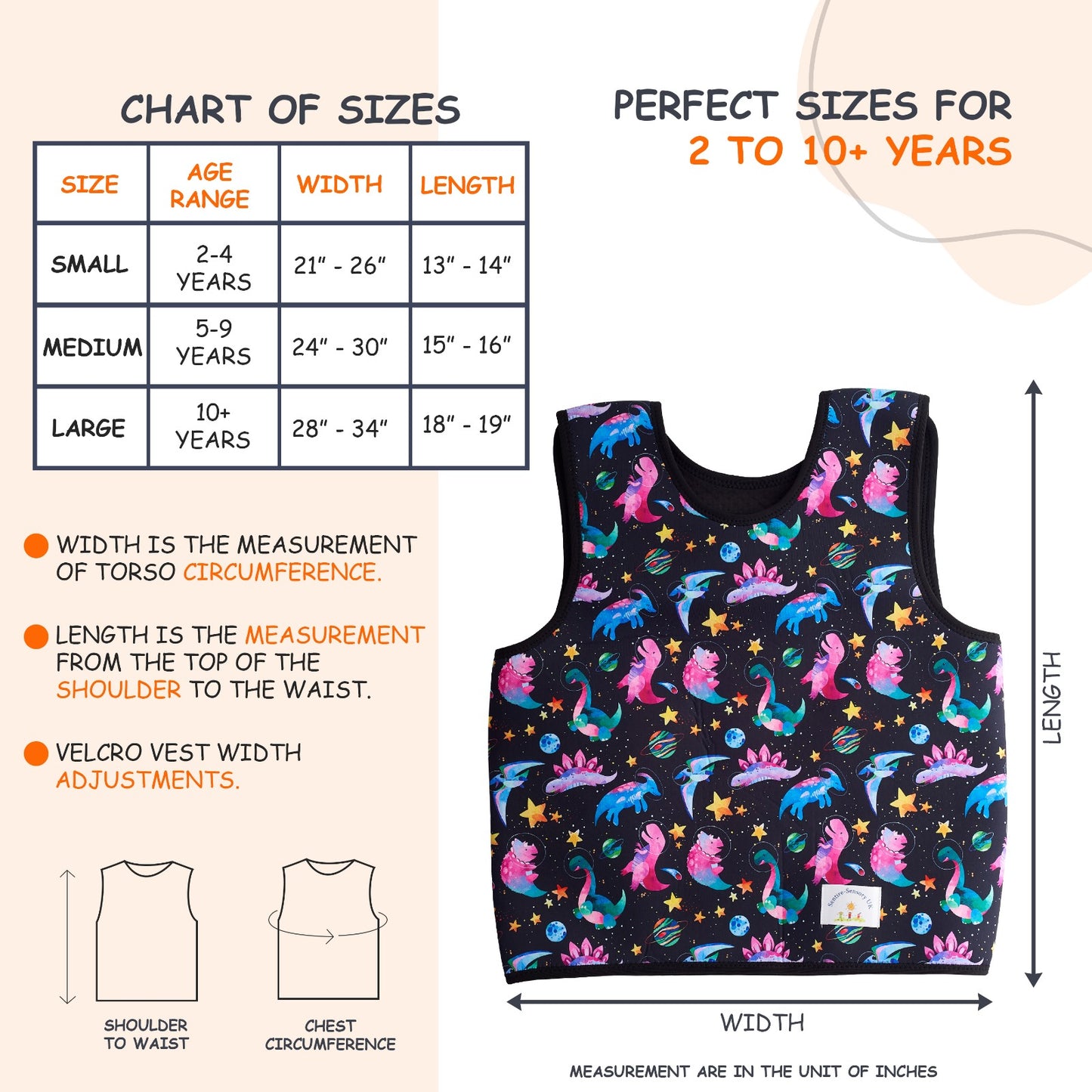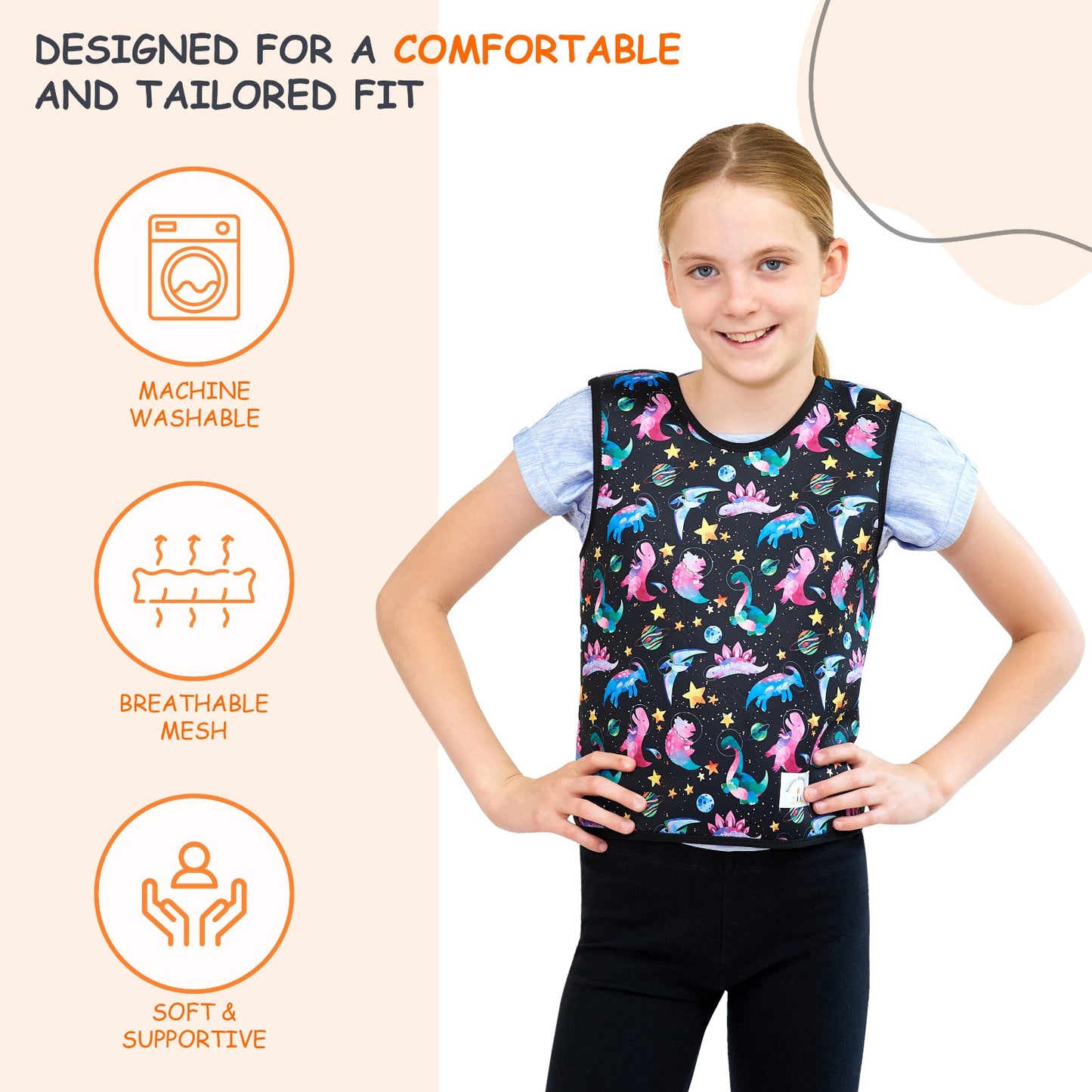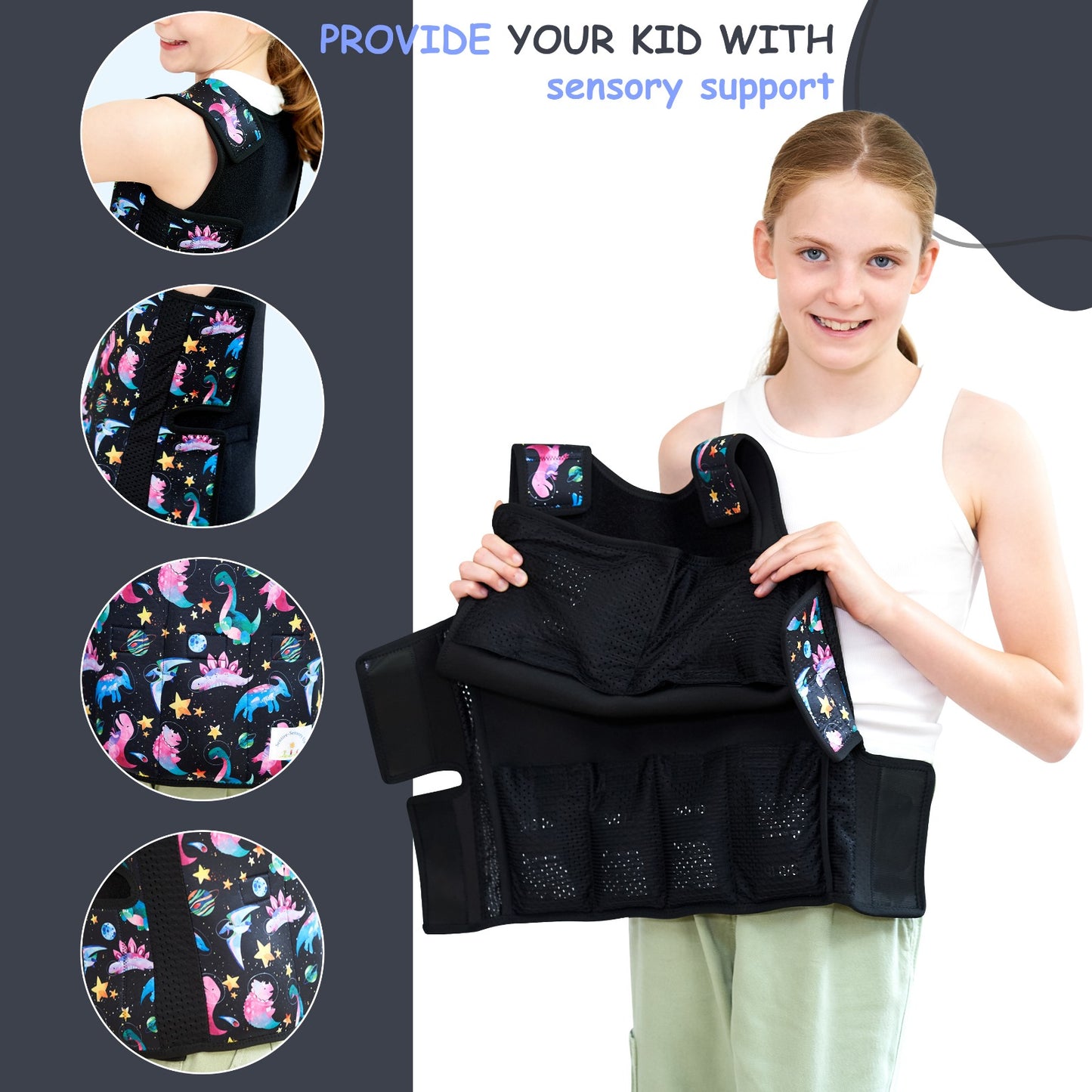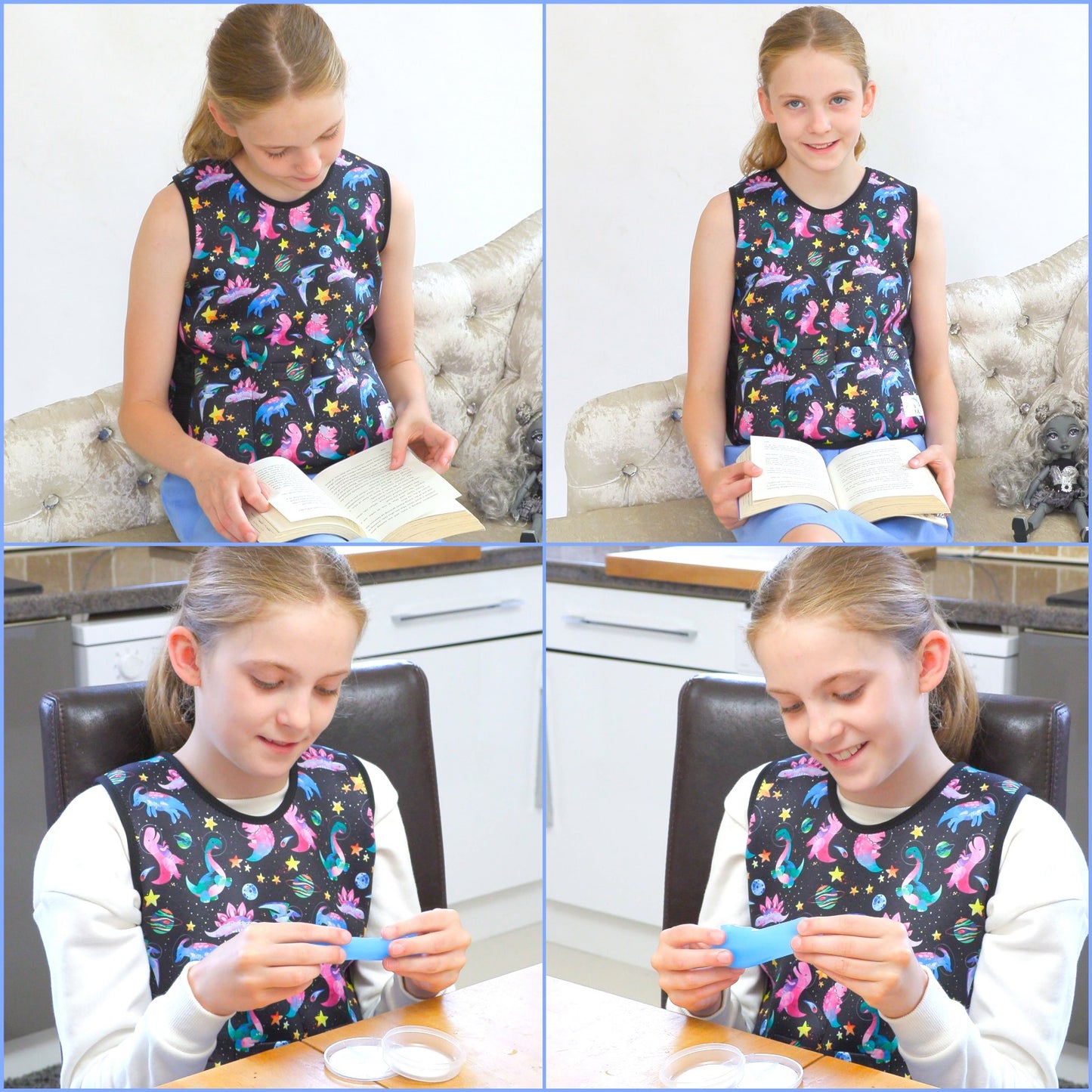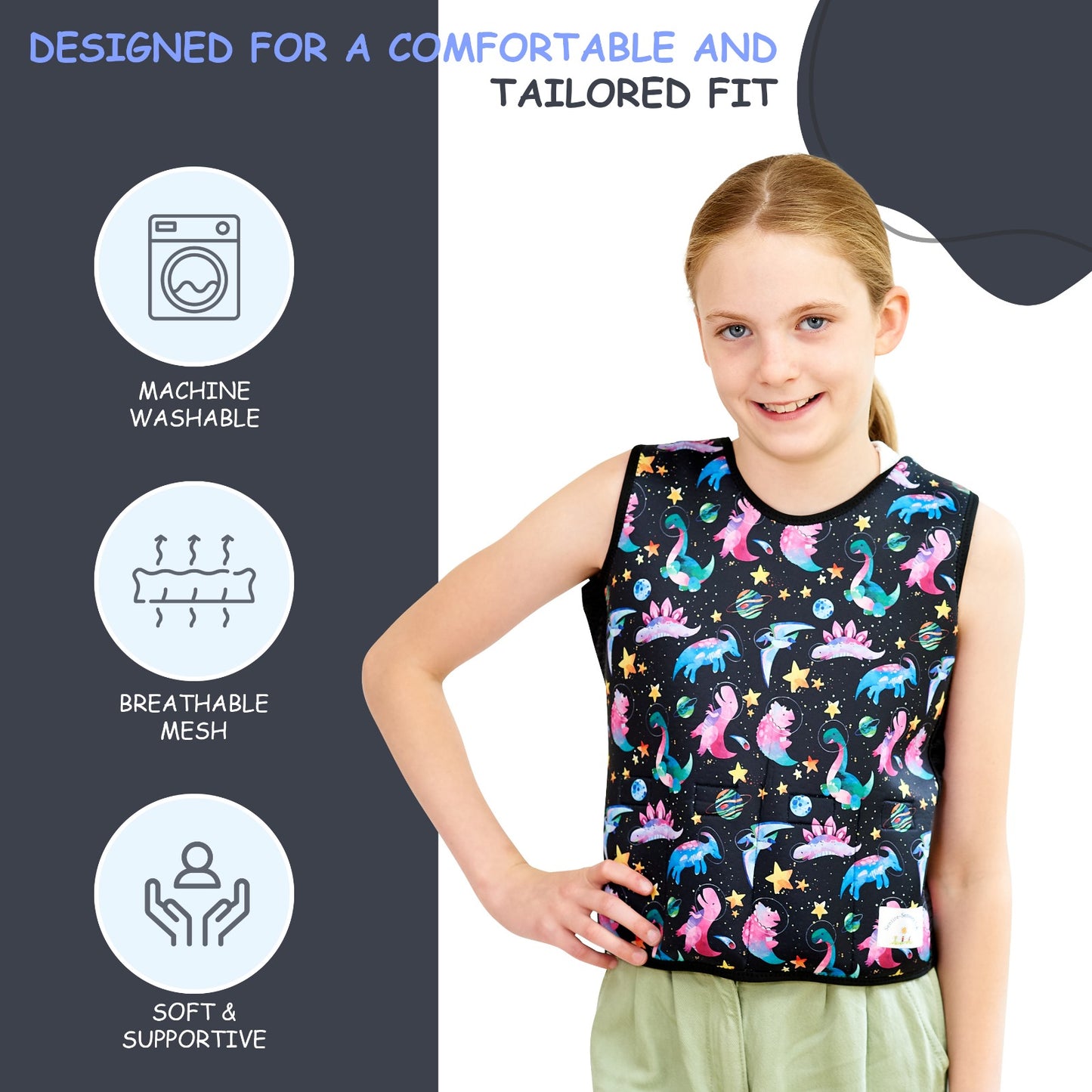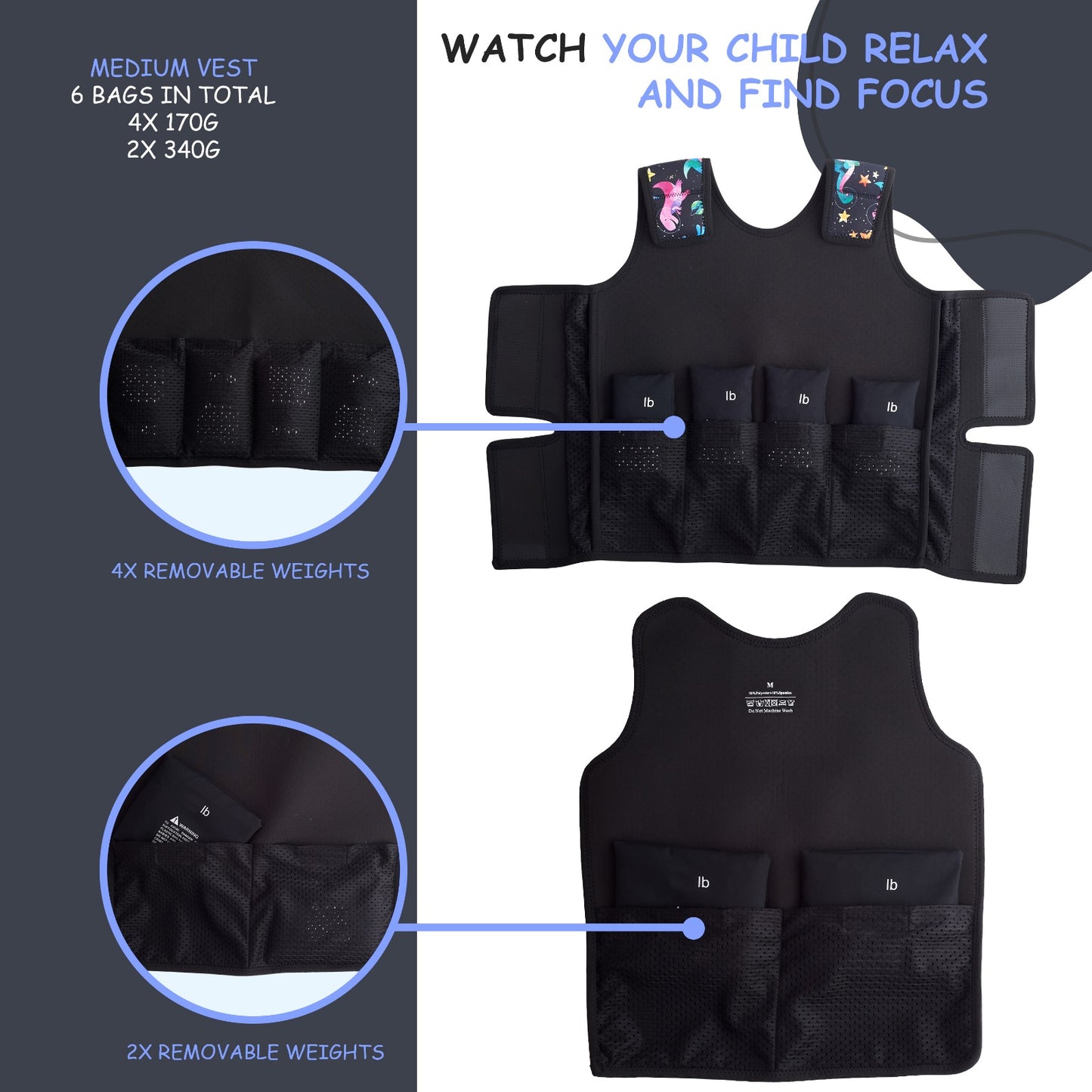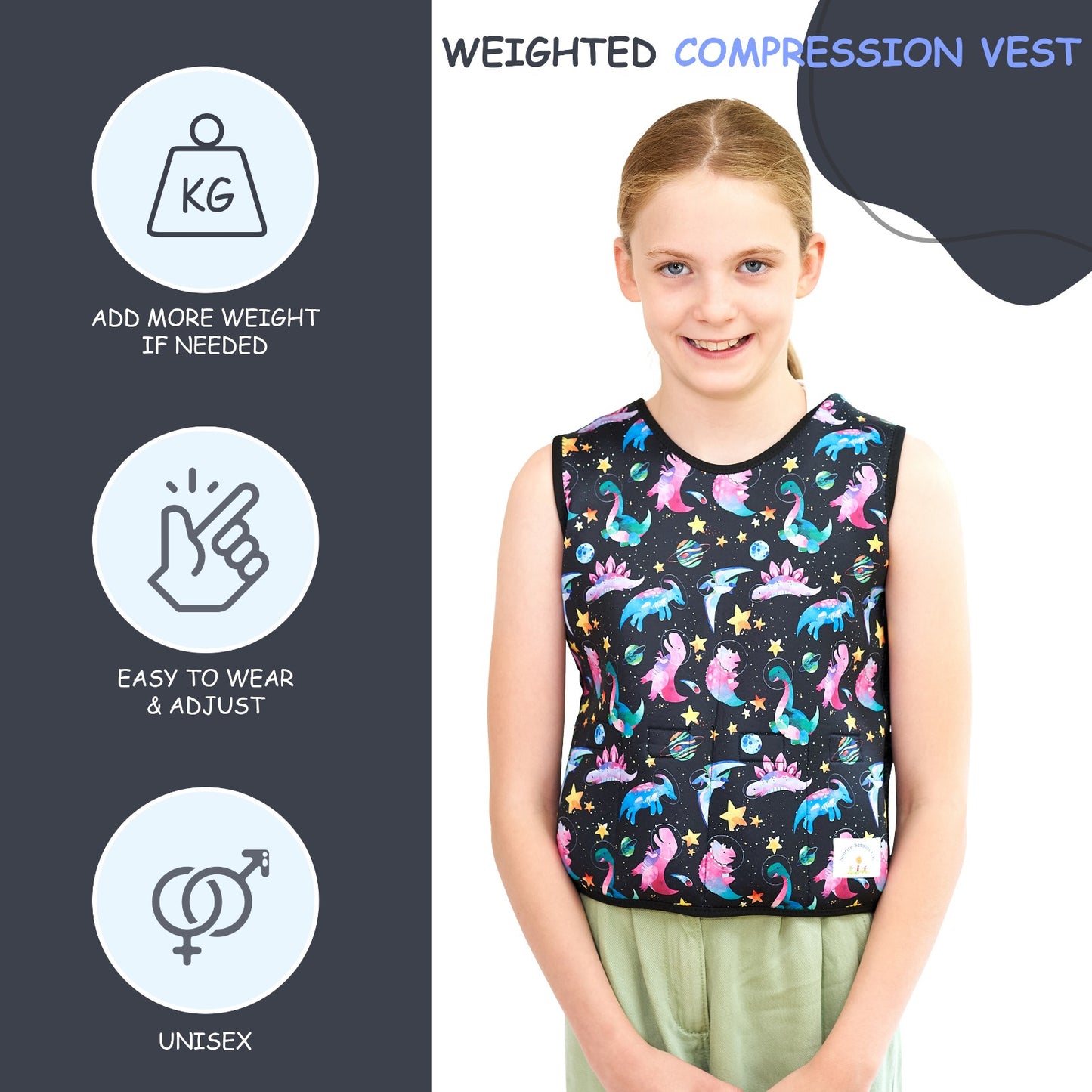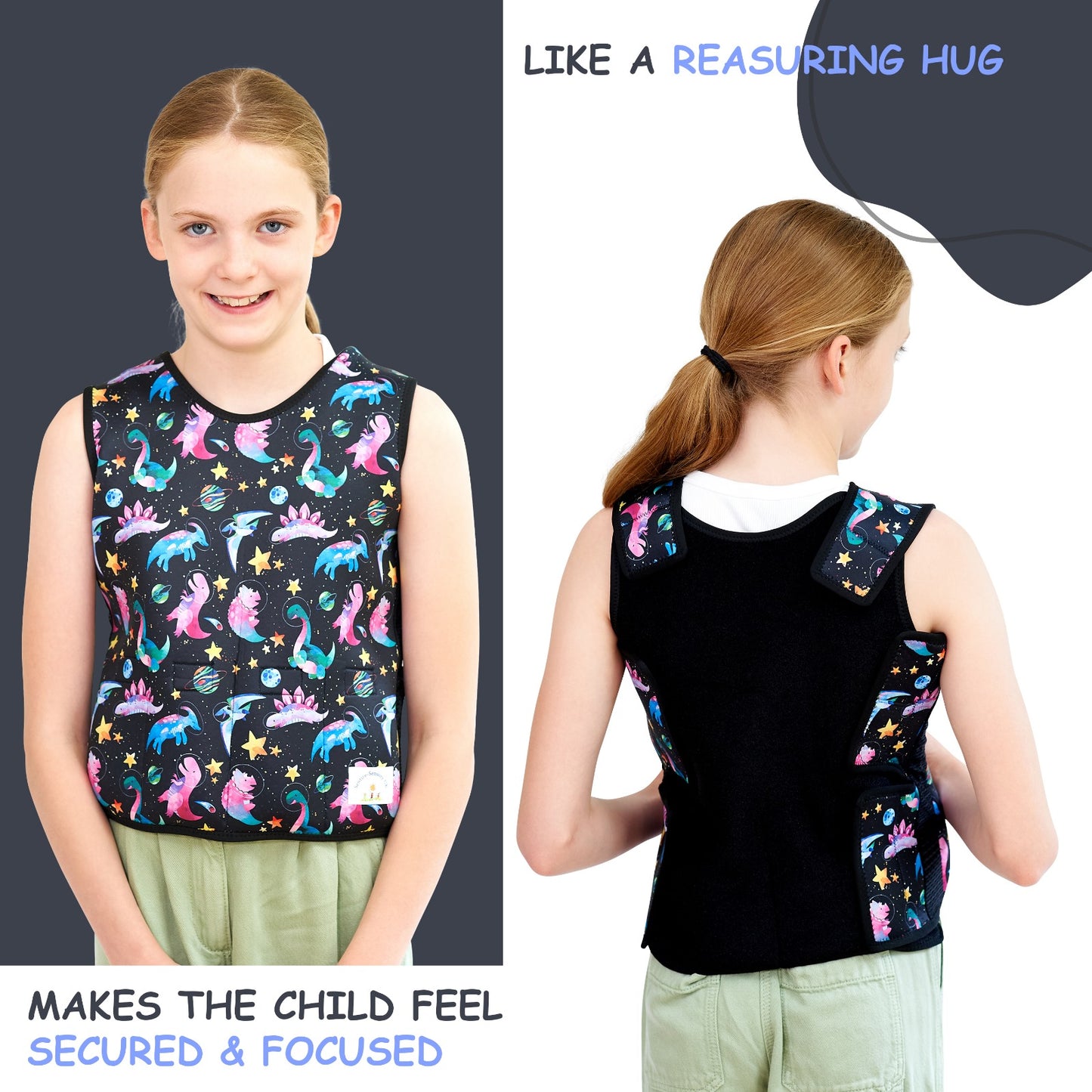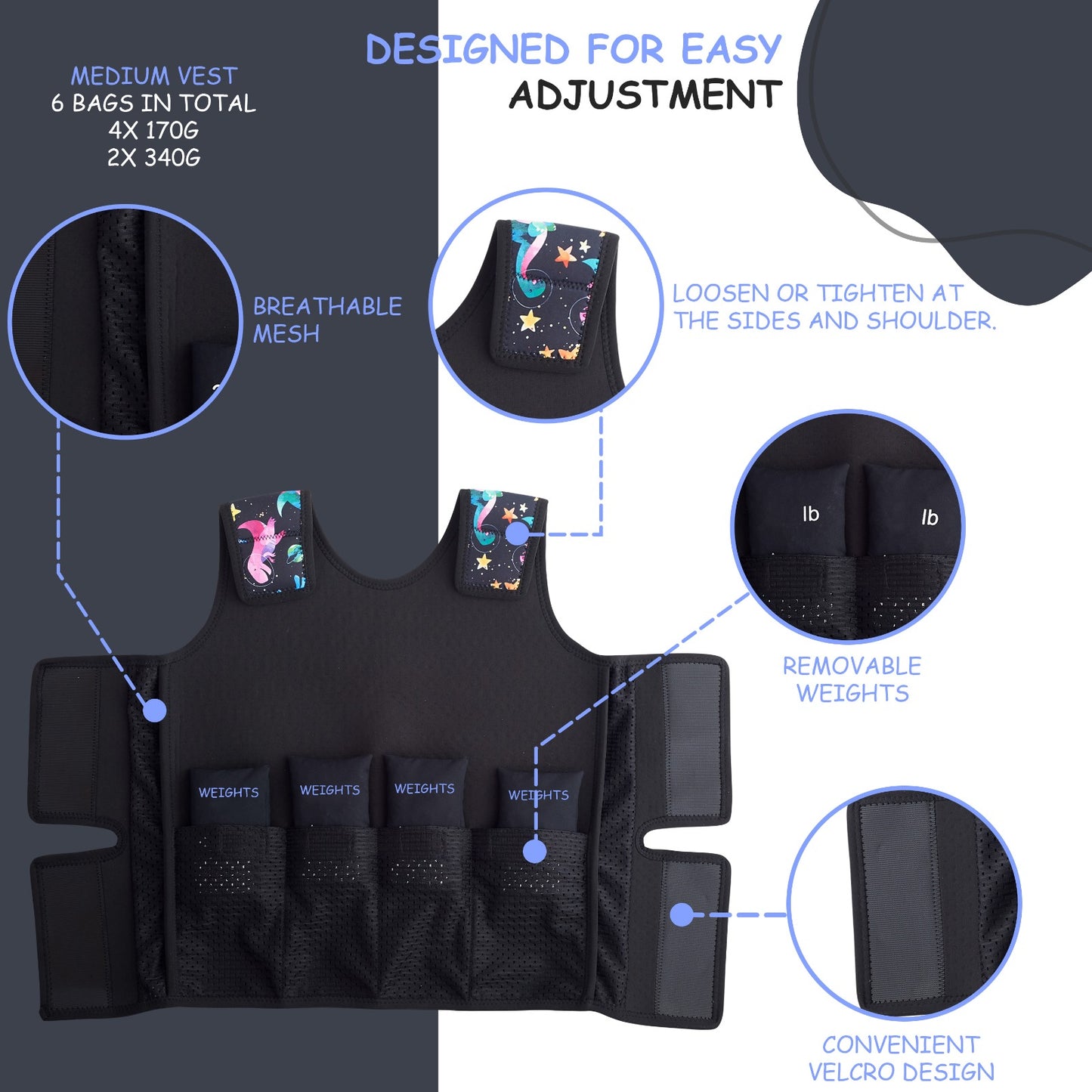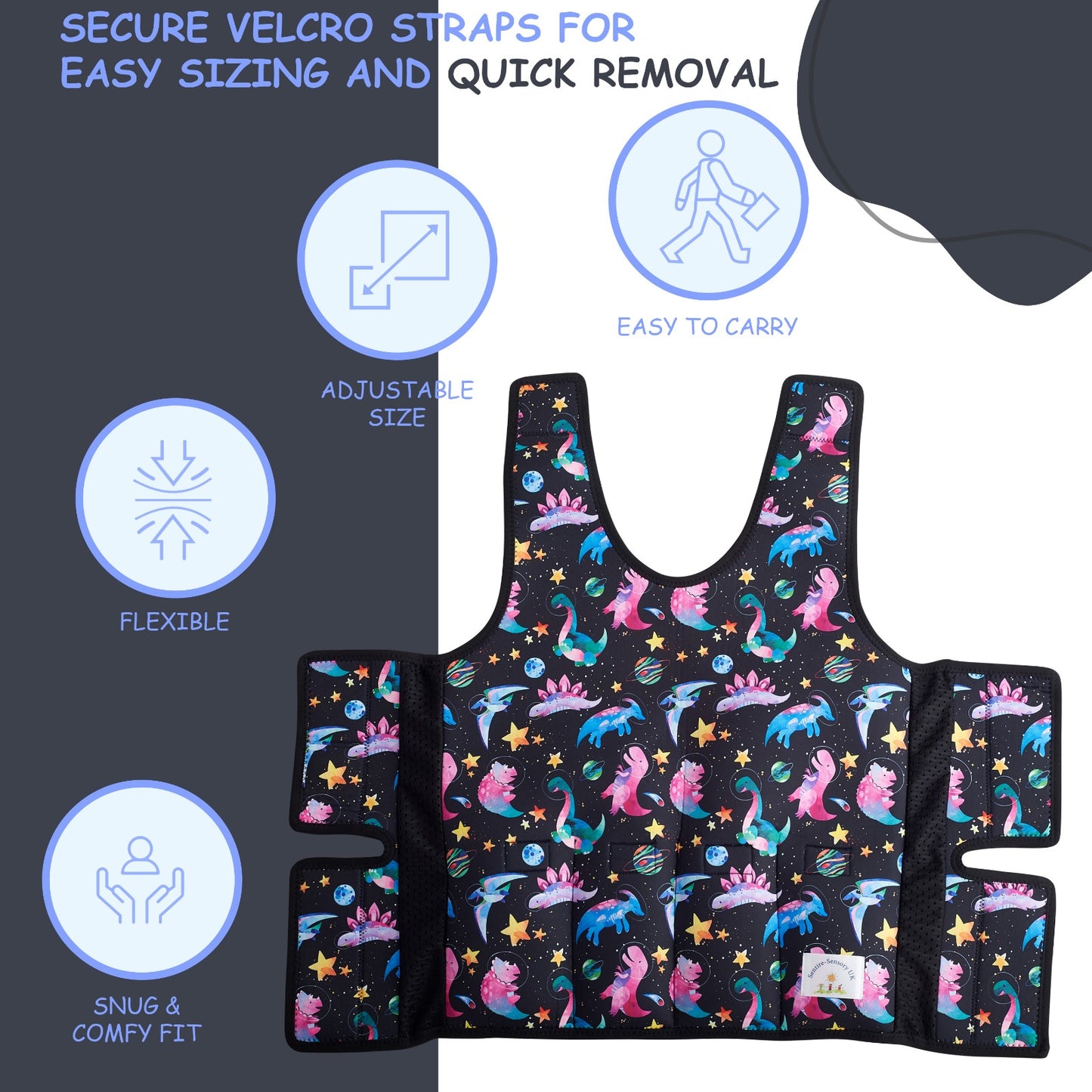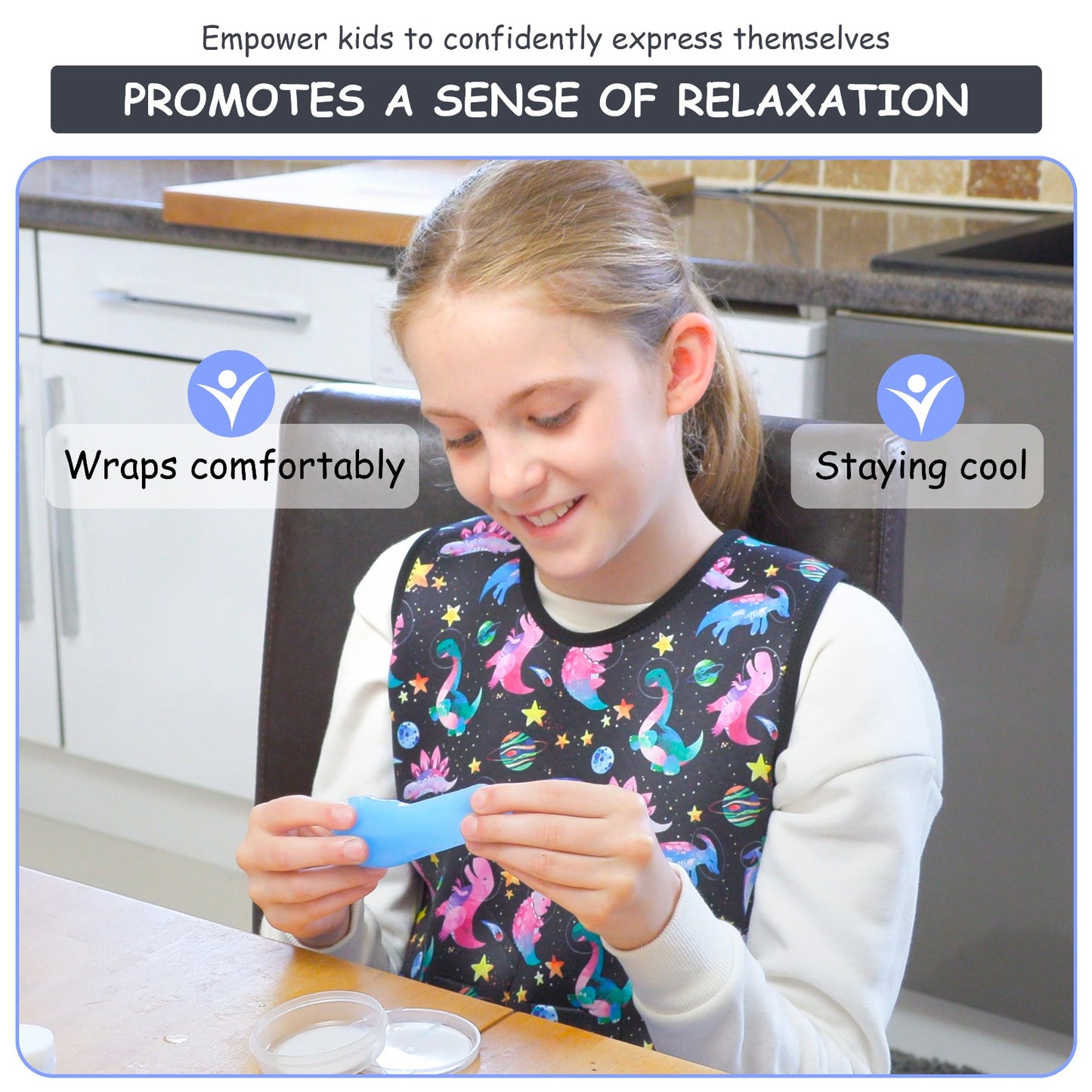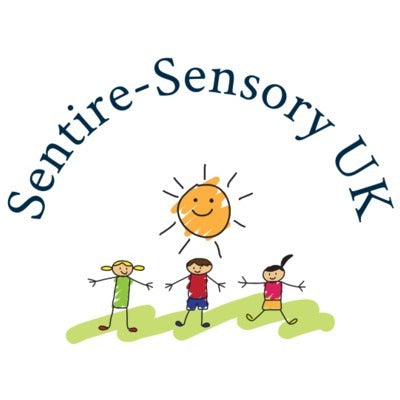Printed Design Weighted Adjustable Compression Vest-Deep Pressure for Children
Printed Design Weighted Adjustable Compression Vest-Deep Pressure for Children
Couldn't load pickup availability
The two great features of this vest is it can be used just as a compression vest with weights removed or put weights into inside pockets for weighted compression.
Comes in 2 sizes:
Small 2-4 year
Medium 5-9 year
Measure to get the correct fitting.
The secure velcro straps on the sides provide a comfortable and tailored fit, easy sizing and quick removal The vest should fit snugly but allow for regular mobility. Simply adjust the compression level on the sides. Weights are safely positioned in pockets inside the vest and can be added or removed. Added pockets means you can add more weight if needed.
LIKE A HUG: The vest's mesh sides were designed for breathability and comfort. With stretchy neoprene for a snug, cozy fit, kids even ask to wear it. If your child has autism or sensory processing disorder, this weighted vest for kids is right for your family. The weighted compression vest makes the perfect partner for when your little one is feeling overloaded. Watch your child relax and find focus in this sensory pressure vest.
Weighted Vests and Autism: What You Need to Know
First and foremost, the use of a weighted vest with a child on the Autism Spectrum is merely a tool in the toolbox. Children with Autism Spectrum Disorders (ASD) often have difficulty processing and integrating sensory information throughout their day. It is important to work with an occupational therapist to explore a number of sensory motor strategies to help your child achieve their goals and access their environment more independently. The use of a weighted vest may or may not be a tool that helps meet your child’s sensory needs but is likely worth exploring.
What is a Weighted Vest?
A weighted vest is a wearable garment with the capability of holding weight, typically a vest with sewn internal pockets where small ½ or ¼ pound weights can be placed. The weight and compression delivered by the vest provides proprioceptive input using deep pressure to the muscles and joints which sends signals to the brain helping a person feel calm and focused. On a potentially relatable level, it resembles a firm hug, without the emotional connotations!
The benefits can occur in a very wide range with the most frequently reported being increased attention, focus and concentration as well as an increased sense of calm and reduction in anxiety.
Additionally, other mentioned benefits include improvements in:
• Functional communication
• Executive functioning
• Problem solving
• Delayed gratification
• Higher ordered thinking
• Self-regulation/ emotional-regulation
• Body awareness
• Motor planning
• Coordination
What are the Benefits of Using This Tool, Specifically for Autism?
It is believed that when the central nervous system is well regulated, all physical processes are taking place more effectively. Due to this belief, the benefits of weighted vests may even extend to the child’s internal processes, including processing food more effectively, encouraging better sleeping habits, and impacting interoception (the sense of the internal conditions of the body including hunger, thirst, body temperature, etc.).
Observe Your Child While Wearing Their Weighted Vest
Due to limited scientific evidence marking the effectiveness of weighted vests, it is important to consistently observe a child with Autism when wearing this item. For children who are non-verbal, it is even more important to be observing and noting any displays of physical discomfort or distress. Additionally, for any child who is anxious, this added input may be more anxiety provoking and may not be the right tool to utilize. That being said, maybe the most important source of information regarding this topic is the child! Observing the child to see any changes in their self-regulation or attention or listening to any reports of “feeling good” or “I like it” may be the evidence needed for continued use of this tool!
Tips and Guidelines:
There is no harm in trying a weighted vest on a child who has ASD. However, it is important to be working with an Occupational Therapist who has evaluated your child and can provide additional support through exploring this tool. Below are some tips to ensure the safety and comfort of your child while wearing this kind of vest.
• Start light and slowly increase weight! The vest should end up being no more than 5-10% of child’s body weight. If your child weighs 50 pounds, then the vest should be no more than 5 pounds.
• The weight should be evenly distributed throughout the vest, around the midsection (pockets sewn on the interior circumference of the vest with ability to add/remove weight when needed) and the vest should be snugly fit to your child’s body.
• Avoid habituation: have your child wear the vest for no longer than 15 minutes at a time. Following approximately 15 minutes of wearing, a child will habituate to this newly imposed sensory input and it will no longer be an effective tool.
• Schedule 2-3x per day (one morning, one afternoon) for no more than 15 minutes per wearing schedule.
• Keep in mind that removing the vest is just as much of a sensory experience as donning it in the first place. So directly after wearing, you will likely see a benefit as well and then your child will again, get used (habituate) to the feeling without the weight of the vest.
• Choose timing of wear schedule wisely. It is most appropriate and effective to implement the use of the weighted vest during times where your child may be completing activities such as school work, crafts, eating, playing games requiring communicate to engage during family game time), etc. as these tasks require increased attention/ focus. Having your child wear the vest during times where they are passively watching TV or using devices would not be beneficial.
• Similar to rotating toys or other sensory strategies, using a weighted vest may come in handy sometimes, and may not be beneficial at other times. It may work for 6 months consistently and then completely lose its appeal
Share

